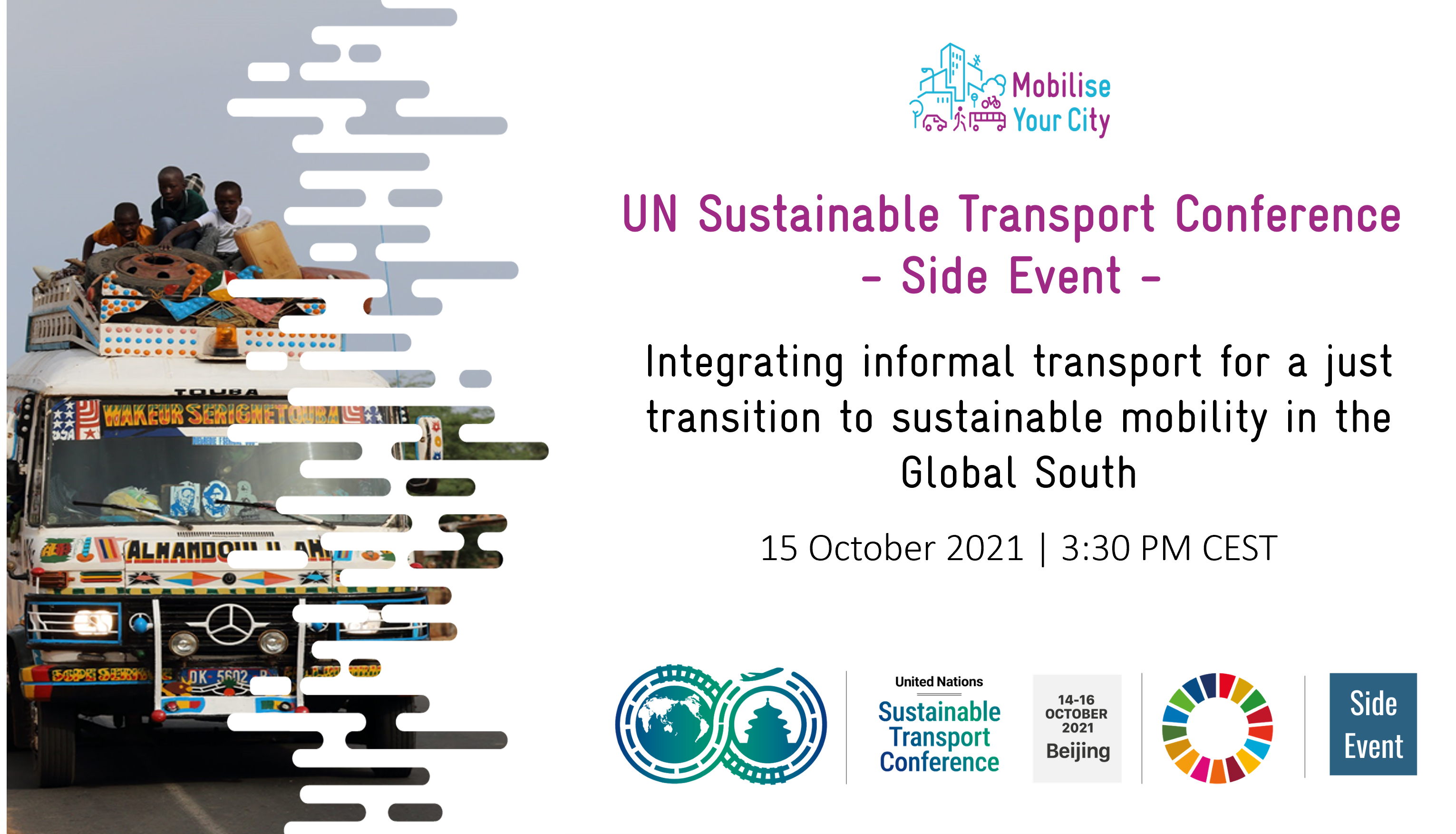
Integrating informal transport for a just transition to sustainable mobility in the Global South
MobiliseYourCity together with the Agence Francaise de Developpement (AFD), Codatu, and the Deutsche Gesellschaft für Internationale Zusammenarbeit (GIZ) will host an online Side Event to the UN 2nd Sustainable Transport Conference entitled "Integrating informal transport for a just transition to sustainable mobility in the Global South".
Register here to receive the link and calendar blocker for the event on October 15th at 3:30 PM.
Informal transport is a phenomenon that can hardly be ignored in the Global South. It is highly beneficial to the poorest segments of the population by acting as an important source of employment to low-skill workers and by providing them with affordable and accessible transport services, thus enabling their participation in economic, social and cultural life.
In addition to the importance of the modal shares of paratransit in many cities of the South, the crucial role of this sector in societies and economies is reflected in the number of jobs it generates, directly or indirectly. In Lagos, for example, the 75,000 minibuses and 200,000 motorbike taxis are responsible for over 500,000 jobs (SSATP, 2012). In Tanzania, the 7,500 minibuses operating in Dar Es Salaam create between 20,000 and 30,000 jobs, according to combined data from the World Bank (2017) and Rizzo (2017). Finally, on the scale of a country like South Africa, there are over 250 000 minibuses, generating over 185 000 direct jobs and 150 000 indirect jobs (ILO, 2003). The sector has thus gradually grown in all parts of the developing world, including countries where the sector is regulated and where public transport provision exists.
However, people working in the sector have poor employment conditions, the sector is a major source of GHG emissions and air pollution, it suffers from a very low quality of services, and it represents a major safety hazard to all road users.
While the sector must be reformed to tackle all these issues, the question is to know how to ensure a just transition that does not hinder the most vulnerable segments of the population.
The objectives of the session are to raise awareness about this complex but extremely important problematic and shed light on its relevance for sustainable urban transport and sustainable development overall. The speakers will be invited to formulate key messages and recommendations for the donor community and international development organizations on action that can be taken to support the integration of paratransit in mobility planning.
During this side-event, high-level international experts will share insights and lessons learned from Latin America, Africa and Asia. They will discuss the drawbacks of profit-driven public transport in times of crisis such as the COVID-19 pandemic, the strengths and opportunities the sector provides, and the particular impact of this informal sector on women, from safety to access.
Register here to receive the link and calendar blocker for the webinar on October 15th.